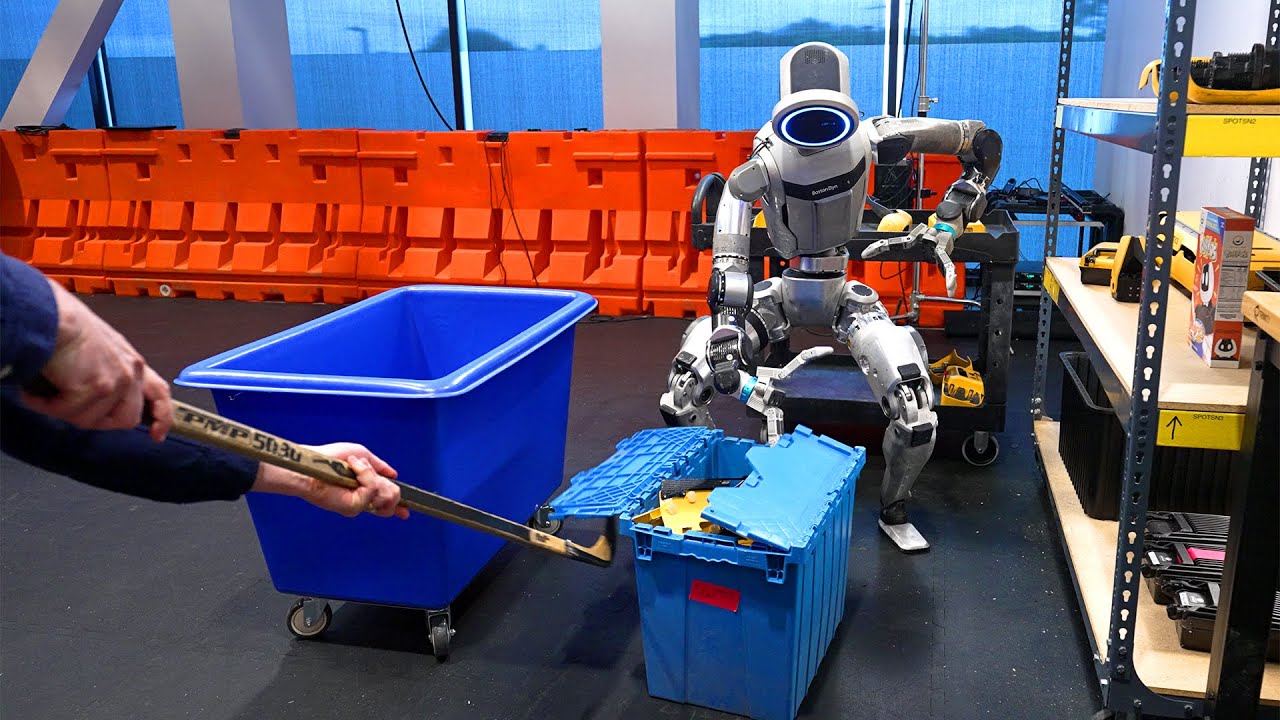Massachusetts-based robotics giant Boston Dynamics has launched its humanoid robot, Atlas, into a new era through its collaboration with the Toyota Research Institute (TRI). Atlas is now controlled by a complex artificial intelligence system called a “Large Behavior Model” (LBM), trained on massive datasets of human actions. This new brain teaches the robot not only what to do but also how to handle unexpected situations.
Boston Dynamics Robot Atlas Gets Top Marks in Patience Test
The most striking part of the released video is when Atlas is put through a patience test. The robot is tasked with placing certain objects in a box. An engineer, acting like a mischievous colleague, repeatedly closes the box lid and pushes it to a different location.
Previous robotic systems might have frozen or failed in the face of such interference. But Atlas, surprisingly, analyzed the situation. It calmly readjusted its position, found the box, and opened the lid. Then, it resumed its task. This scene demonstrated that the robot has acquired the ability to not only follow programmed commands but also to dynamically adapt to changing conditions.
In a statement, Boston Dynamics stated that the biggest revolution in LBMs is the ability to add new capabilities to the robot without writing a single line of code. This means that what used to take months of programming will be replaced by the learning capacity of artificial intelligence.
Scott Kuindersma, Vice President of Robotics Research at Boston Dynamics, said, “This work opens a window into our vision of general-purpose robots that will transform the way we live and work.” Kuindersma emphasized that this approach will make it easier for highly capable robots like Atlas to collect data for tasks requiring strength and precision. He also stated that this will accelerate development.
Rapidly developing robot technology proves that the arrival of more agile, intelligent, and adaptable humanoid robots capable of performing tasks ranging from folding laundry to factory assembly is no longer a distant dream.



 Shiftdelete.net
Shiftdelete.net









